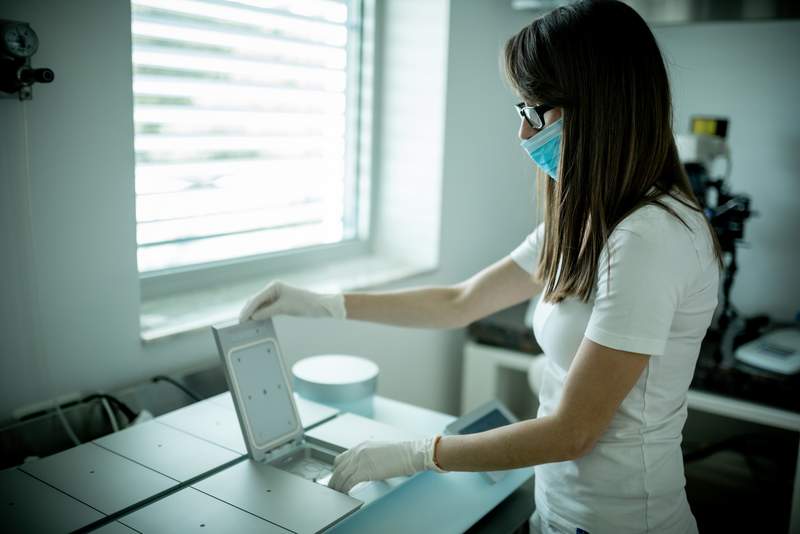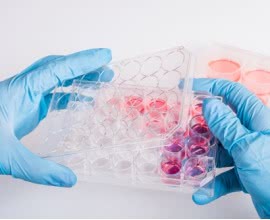Types of Fertility Doctors and Specialists
Fertility doctors and specialists are usually gynecologists or urologists that have undergone additional training to cater to issues surrounding reproductive organs.[1] An individual may be referred to a fertility doctor or specialist by their primary care physician if they possess one or more of the following issues:
-
Trouble conceiving after six months of actively trying if they are 35 years of age or older
-
Trouble conceiving after a year of actively trying if they are under 35
-
Suffered two more miscarriages
-
Trying to conceive when the patient has symptoms or risks of infertility[2]
As infertility is a complex medical issue and differs depending on the individual or couple, the field of reproductive medicine requires its doctors to specialize in different fields related to fertility, some of which will be discussed in this article.

Reproductive Endocrinologist
Reproductive endocrinologists, sometimes abbreviated to REs, are gynecologists specifically trained to focus on fertility related issues in both men and women, though it could be argued that they focus primarily on female patients.[3] REs are expected to have in-depth knowledge of issues specific to reproductive organs such as endometriosis, uterine anomalies, fallopian tube issues, and polycystic ovarian syndrome (PCOS).[4]
The job of an RE includes managing, carrying out and prescribing an assortment of fertility tests and treatments, and they are usually the primary fertility specialist and consult for a fertility patient.[5] After they have received preliminary results on their patient, an RE is usually the one to suggest and lead fertility treatments like intrauterine insemination (IUI) or in-vitro fertilization (IVF).[6]
Andrologist
Andrologists are urologists specifically trained to deal extensively with male fertility and male reproductive health.[7] Reproductive endocrinologists and andrologists usually end up working together because while an RE may be in charge of the initial medical examination of the patient (detailed physical, DNA tests, semen analysis, sperm health), the andrologist will then take over to examine any reproductive issues in further detail.[8]
Andrologists are also licensed to perform a testicular biopsy, which is used for testicular sperm extraction (TESE); and they are also trained to treat reproductive infections, erectile dysfunctions, testicular torsion and undescended testes.[9]
Reproductive Surgeon
Reproductive surgeons specialize in surgical procedures necessary to treat patients with medical issues that extend beyond having a successful delivery. While reproductive endocrinologists are trained to perform surgery, reproductive surgeons are specifically trained to perform surgical procedures such as the removal of fibroids, surgically treating endometriosis, performing or reversing vasectomies and tubal ligations.[10]
Reproductive immunologist
Reproductive immunologists, who can be physicians or scientists, combine the knowledge of immunology and reproductive medicine and are usually called into offer a consult when a patient displays symptoms of reoccurring miscarriages, or has unexplained infertility or repeated IVF failure.[11]
Embryologist
An embryologist focuses on reproductive issues on an embryonic level. They usually work with reproductive endocrinologists to attend to the reproductive health of a patient but they can also be responsible for the retrieving of eggs, being involved with assisted reproductive techniques (ART) such in-vitro fertilization, maintaining clinical records and running tests on eggs in the IVF laboratory.[12]

In conclusion, whatever the specialty, fertility doctors and specialists are all trained in their specialized fields of expertise in order to give the patient(s) the best possible chance of addressing any fertility or reproductive issues so that they can then assist them into having a successful pregnancy and delivery of a healthy baby.
Sources:
[1] Gurevich, Rachel, ‘Types of Fertility Doctors and Specialists’, in verywellfamily, updated November 28th, 2018, viewed on March 31st, 2019, https://www.verywellfamily.com/fertility-specialists-1959956
[2] ibid
[3] ‘What Type of Doctor Treats Infertility?’, in Altora Health, viewed on March 31st, 2019, https://altorahealth.com/what-type-of-doctor-treats-infertility/
[4] ibid
[7] ibid
[8] ibid
[9] Gurevich, Rachel, ‘Types of Fertility Doctors and Specialists’, in verywellfamily, updated November 28th, 2018, viewed on March 31st, 2019, https://www.verywellfamily.com/fertility-specialists-1959956
[10] ibid
[11] ibid
[12] ‘Embryologist: Job Description and Career Requirements’, in study.com, viewed on March 31st, 2019, https://study.com/articles/Embryologist_Job_Description_and_Requirements_for_a_Career_as_a_Embryologist.html














